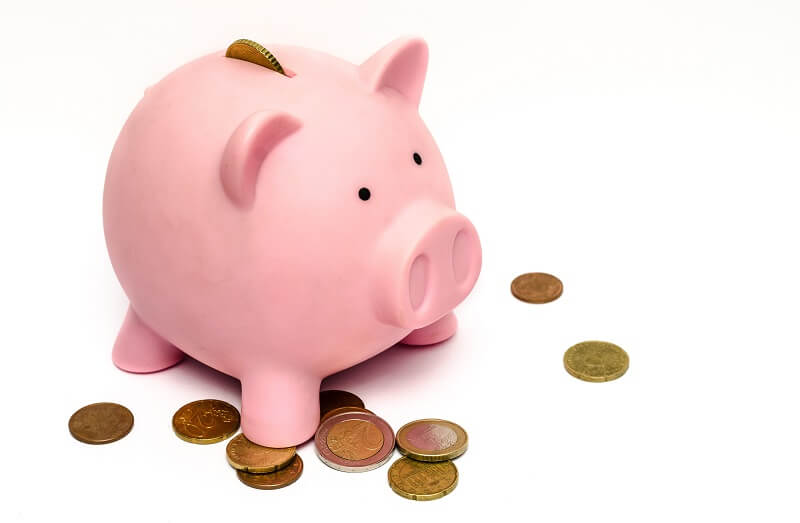cashasap.co.uk is a short term loan direct lender, providing payday and instalment loans. We know a lot about money, from loans to credit cards. Credit cards can be a powerful financial tool that can help you to build your credit score, spread the cost of purchases and budget well. We’ve put together this guide on the best ways to use a credit card to help you manage borrowing and stay in control of your finances.
Are Credit Cards Good?
There are a lot of misunderstandings and anxieties around credit cards because, if they’re not used well, they can cause financial problems. However, credit cards generally are good; they can be a helpful and flexible financial tool.
Credit cards can:
- Help to spread the cost of bigger purchases
- Help you to budget
- Improve your credit rating
- Protect against problems with purchases
- Help you to secure future loans
However, in order to make the most of the advantages of credit cards, you have to ensure that you use them in the best ways possible.
If you depend on your credit card in order to pay bills or other regular monthly costs, or if you know that you won’t be able to pay back the money you borrow, then a credit card might not be the best choice for you. Instead, you should look at your budgeting and seek help from money advice services and charities.
When Should I Use A Credit Card?
Credit cards are a great choice if you’re looking to make the most of your money. It’s fine, and often beneficial, to use your credit card for a range of purposes provided that you know you can afford to pay them back.
For example, you can use your credit card to build your credit rating. Borrowing small amounts of money and repaying them will help to show that you’re a reliable borrower. This will improve your credit score and make it easier for you to secure loans in the future. For example, you could use it to make an online purchase a few times a month, or to buy petrol, as an easy way to build your credit history.

How Do Credit Cards Work?
Credit cards are a flexible way to manage money, spread costs and build your credit score. They work in a similar way to a loan: through your credit card, you borrow money from your credit card company to make purchases — this is called buying on credit. You then have to pay the money back in the future.
While short term loans, such as payday or instalment loans, are intended to cover unexpected costs and tide you over until your next payday, credit cards are designed to be a potentially longer term way of borrowing money where you are full in control. They can help you to spread the cost of bigger and often non-emergency purchases, like a holiday or a new sofa, over a period of time that works for you. This could be a few days, or it could be a few years.
You don’t have to use your credit card for larger purchases or to borrow over a longer period of time. You can use it for smaller purchases too, which is a great way to build up your credit score.
However, the key difference between a credit card and a loan is that loans have a fixed repayment date. Credit cards, on the other hand, don’t have a specified date by which you have to pay off your credit. However, there are some terms that you do have to follow...
Minimum Repayment
While there’s no repayment date by which time you have to have repaid your credit in full, credit card companies always set a minimum repayment. This means that there will be a set cost — either a percentage of the money you’ve borrowed or a set fee — that you have to repay each month.
This is usually very low, which means that making only the minimum payments every month won’t help you to quickly pay off your credit card so where possible you should always pay back as much as you can afford each month.
Credit Limit
Your credit card will also have a limit on it. This is the most amount of money that you can borrow on credit. Different cards and companies will set different limits, which also often depend on your credit rating. If you have a thin credit history (if you haven’t borrowed much money previously) then your card will likely start with a low credit limit. Your provider will often offer you a higher limit in time, as you use your credit card well.
If you go over your credit limit, you will incur a fee. It can also impact your credit score, so it’s best to keep an eye on your limit and how much you’re spending on credit.
Interest
If you pay your credit card off in full each month, then you won’t be changed anything extra. However, credit that you roll over to the next month will be charged interest, which will vary according to your specific credit card and provider.
Additional Fees
Credit cards will often have additional fees that you should make sure you’re aware of. For example, in the vast majority of cases, there will be additional fees for using your credit card to withdraw cash at a cashpoint.
Best Ways To Use Your Credit Card
Using your credit card in the best ways can help to ensure that you stay in control of your spending and your finances, as well as making the most of the advantages that having a credit card can bring.
1. To Build Your Credit History
Credit cards are a fantastic way to build your credit history as they’re secure, flexible and can be used to make small payments. It’s important to have a good credit history to help you to secure loans in the future, including buying a car with a finance plan, getting a better credit card, or even securing a mortgage.
If you’ve not borrowed money before, then you won’t have any history for lenders to be able to tell whether or not you’re a reliable borrower. It’s therefore a really good idea to build your credit history in advance of needing it.
To use your credit card to improve your credit rating, it’s a good idea to use small amounts of credit fairly often.
It’s worth noting that CRAs (credit reference agencies) often recommend keeping below a certain percentage of your credit limit in order to have the best impact upon your credit rating. If you frequently come close to your credit limit, it could indicate that you’re reliant on credit and suggest that you’re not in a good financial position. This could negatively impact your credit score. Experian, for example, recommend using less than 25% of your credit limit every month. For example, if you have a limit of £1000, try to use less than £250 (source).
If you’re using your card to build your credit rating, it’s wise to pay your credit back in full each month to avoid unnecessary interest. You should set up a direct debit payment that automatically pays off the full amount every month.
It always takes time to build up a good credit history, but a credit card is a great way to do it.
2. To Budget Wisely
Credit cards are a fantastic way to spread the cost of bigger purchases that might put strain on your finances were you to pay them in bulk. You can instead buy them on credit and pay off the credit (plus interest) every month until you’ve paid for the purchase in full.
However, it’s important to use this benefit of credit cards wisely by budgeting for it. Be sure to include credit card repayments in your monthly budgeting plan and calculate how much interest will add to the overall cost of your purchase.
You should only use a credit card to make the most of your money. This means knowing that you can afford repayments and being confident that using credit is not going to cause you further financial problems down the line. If you already have debt on your card, then you should first look at paying this off before you add extra purchases.

3. To Buy Securely
Credit cards help to protect your purchases. If something you buy doesn’t arrive or is damaged, or if a service you’ve purchased on credit isn’t delivered, then your credit company is responsible too.
Under section 75 of the Consumer Credit Act of 1974, it states that ‘the creditor […] with the supplier, shall accordingly be jointly and severally liable to the debtor’ if there is a problem with the purchase. (Source). This means that if something goes wrong, you can tell your credit provider and they are as responsible as the supplier for making sure you get your money back.
This covers anything that costs between £100-£30,000 bought on your card. This means that if you’re making a purchase on something costly, you could charge it to your credit card to buy it more securely and with confidence. However, it’s important to remember not to spend above your credit limit!
Using your credit card in the best way helps you to stay in control of your finances and make the most of all the advantages that a credit card can bring.


